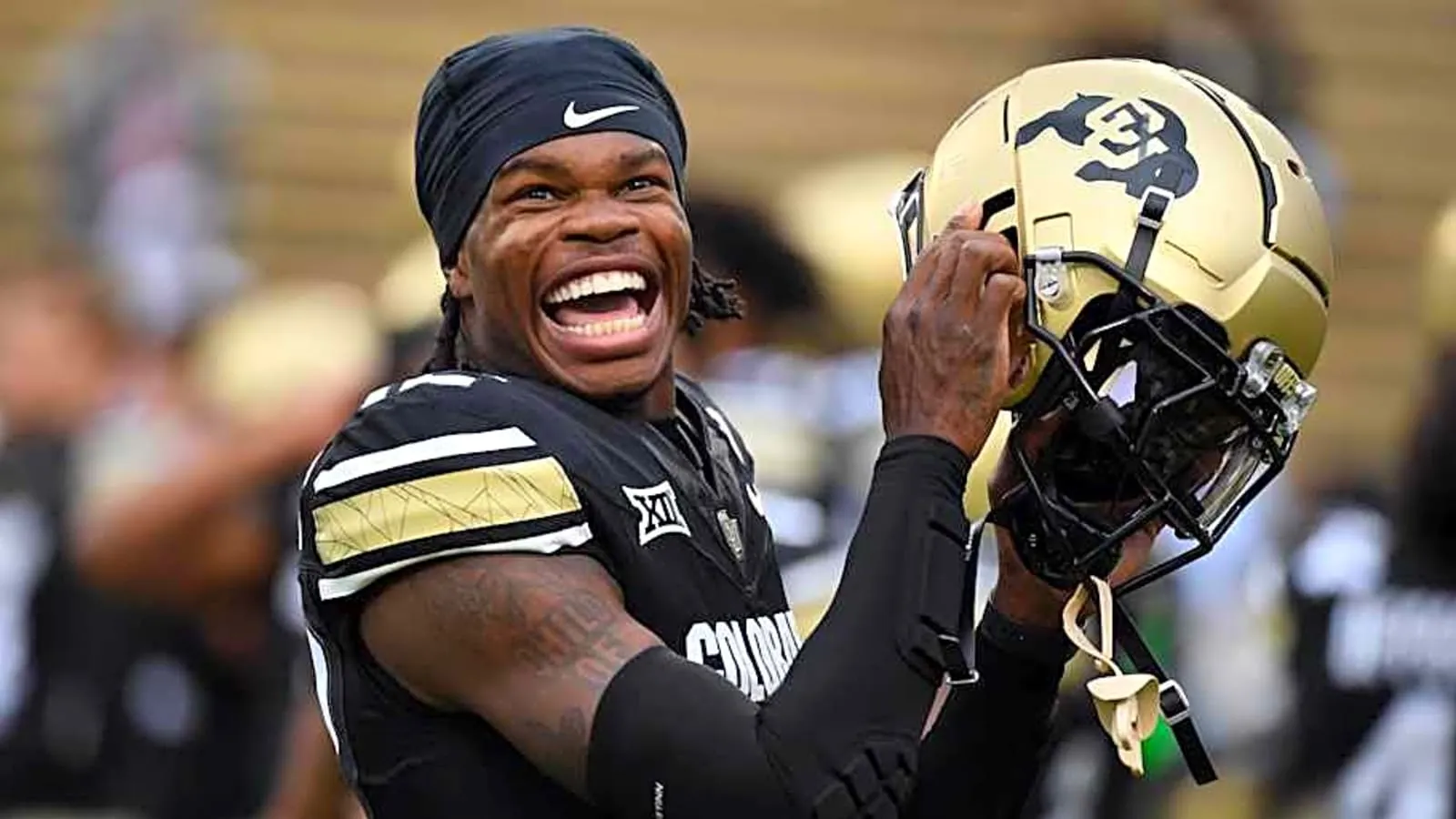When it comes to Travis Hunter, the star two-way player out of college football, one thing is clear: He is not afraid to call the shots. Known for his incredible versatility on the field, Hunter’s dream is to be the NFL’s first full-time two-way player in decades. However, his future in the NFL depends on one major factor: whether the team that drafts him will allow him to continue playing both offense and defense.
In a recent interview with CBS Sports’ Garrett Podell, Hunter made it abundantly clear that if he is drafted by a team that only wants him to play one side of the ball, he would rather sit out entirely than compromise.
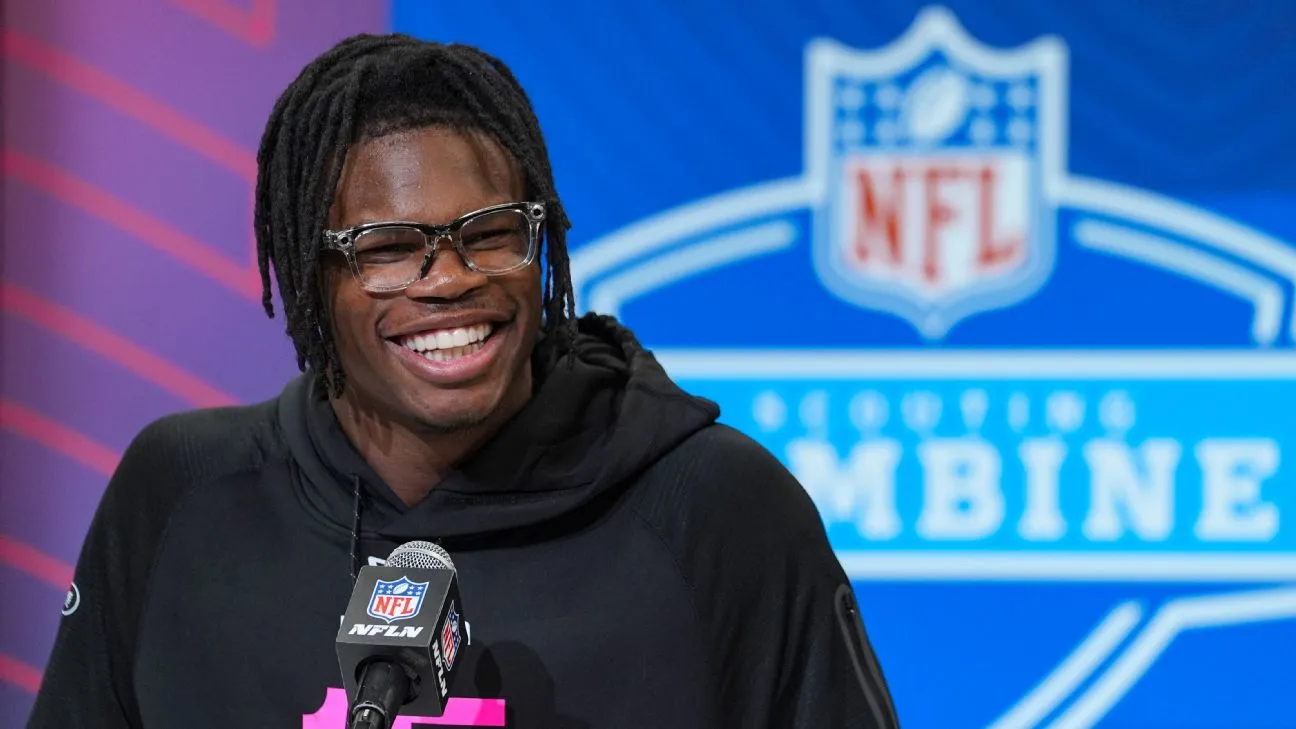
“It’s never playing football again,” Hunter said. “Because I’ve been doing it my whole life, and I love being on the football field. I feel like I could dominate on each side of the ball, so I really enjoy doing it.”
The Power of Choice: Will Teams Listen to Hunter’s Demands?
At first glance, Hunter’s ultimatum might seem like an idle threat. After all, why would a talented player like him walk away from the chance to play in the NFL over something as fundamental as his position? Isn’t it better to simply refuse to play for a team that doesn’t give him what he wants, rather than jeopardizing his future by sitting out?
But here’s the thing: Hunter is fully aware of the power dynamics at play in the NFL draft. Once the draft begins, Hunter’s destiny is no longer in his hands. He is subject to the whims of whichever team picks him. The draft is a time when careers are made or broken, and for players like Hunter, a team’s willingness to let him play both ways could make or break his professional future.
This is where Hunter’s leverage comes into play. His ability to play both offense and defense at an elite level is a rare skill that could set him apart from his peers. But as we’ve seen in the past, players often end up in unfavorable situations due to the team that drafts them. Could Hunter be risking his career by taking such a bold stance?
The Draft’s Sorting Hat: A Blessing or a Curse?
Hunter’s remarks about not playing at all if he can’t play both ways are also a reflection of his understanding of the NFL’s so-called “sorting hat.” This term refers to the way teams sort players during the draft process, often assigning them to positions or schemes that might not align with their strengths.
Many players end up on teams that don’t allow them to reach their full potential, and some may never find success because of a lack of support or development. Consider the early struggles of quarterbacks like Geno Smith, Baker Mayfield, and Sam Darnold. Was it their fault they struggled in their early years? Or was it the team they were drafted by, their coaching staff, and even the front office’s decisions that hindered their growth?
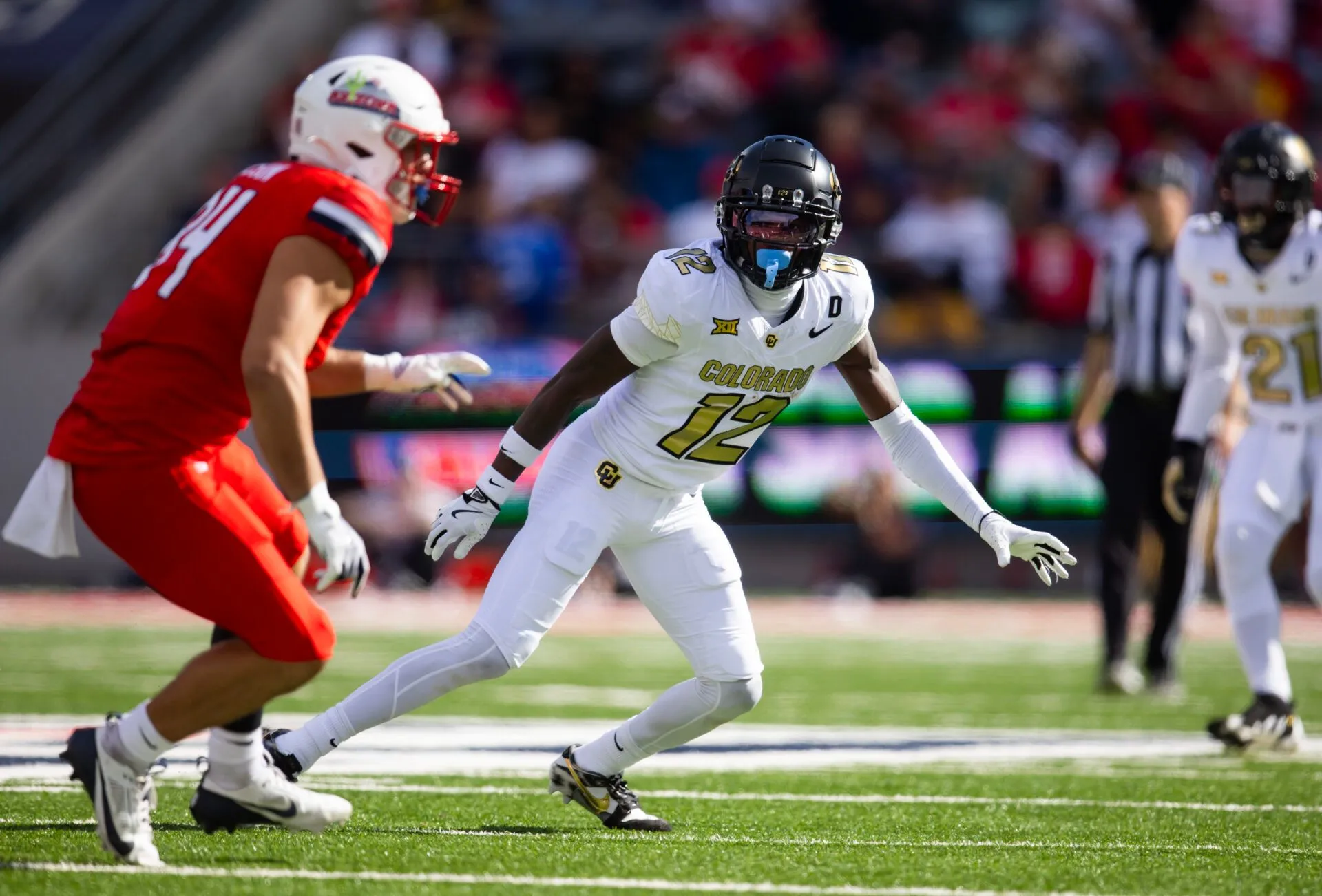
In this context, Hunter’s refusal to settle for a team that limits him to one position isn’t just a matter of preference — it’s about ensuring he ends up in a system where he can thrive. He is not merely a player; he is a commodity with the rare talent to dominate on both sides of the ball. If a team won’t allow him that, why should he settle?
Hunter’s Next Move: Making His Position Clear Before the Draft
So what does this all mean for Hunter and his draft prospects? The next nine days are crucial. As Hunter prepares for the draft, he has the opportunity to make one thing clear to the teams at the top: If they don’t plan on letting him play both ways, they shouldn’t bother drafting him. Instead, they should trade their pick to a team that is willing to give him the freedom to showcase his talents on both offense and defense.
For a player of Hunter’s caliber, this type of proactive power move could pay off. He doesn’t need to wait until after the draft to make his stance known; in fact, it would be more effective if he takes a stand now, while teams still have the chance to adjust their plans.
It’s a risky move, but it’s one that could ultimately shape his career in the NFL.
Is Travis Hunter the Future of Two-Way Players in the NFL?
Hunter’s comments are also part of a larger conversation about the future of the NFL. Could we be seeing a resurgence of two-way players like the legendary Deion Sanders and Bo Jackson, who once dominated both sides of the ball? While it’s been decades since the NFL has seen a true two-way player, Hunter believes he has the ability to be that game-changing force.
“If you can do both, why not?” Hunter said. “Why limit yourself to one side of the ball when you can excel at both?”
In many ways, Hunter represents the future of the NFL — a future where players are allowed to do more than one thing, breaking the mold and redefining what it means to be a football star. He’s not just looking for a career; he’s looking for a platform to display his full range of abilities.
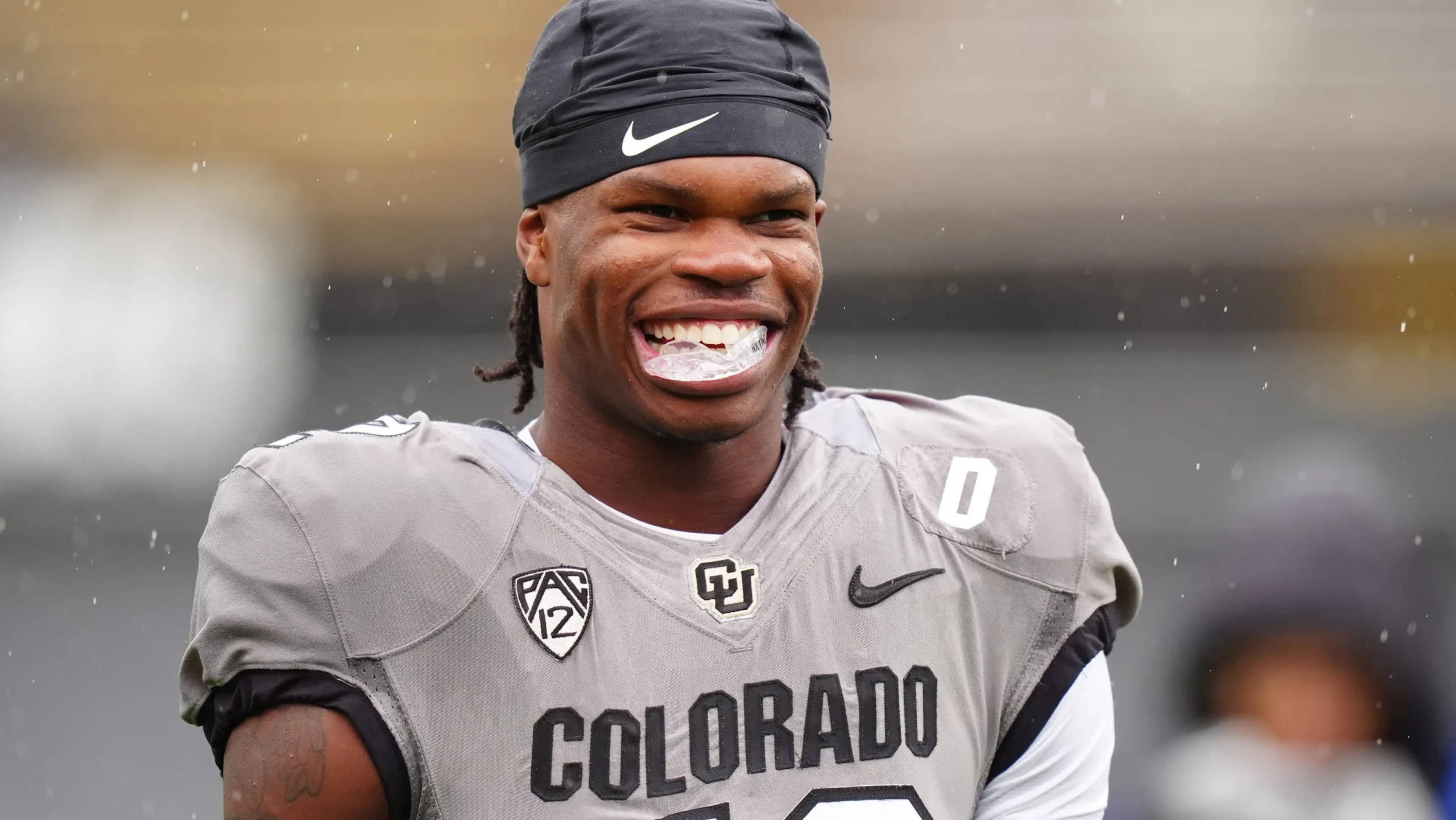
If Hunter sticks to his guns and makes this a central part of his draft strategy, it will be fascinating to see how NFL teams respond. His boldness could pave the way for more players to pursue dual roles in the future, changing the landscape of professional football.
As the NFL draft approaches, Travis Hunter’s message couldn’t be clearer: He wants to play both ways, or he won’t play at all. It’s a powerful statement, and one that could have major implications for his career and the future of two-way players in the league.
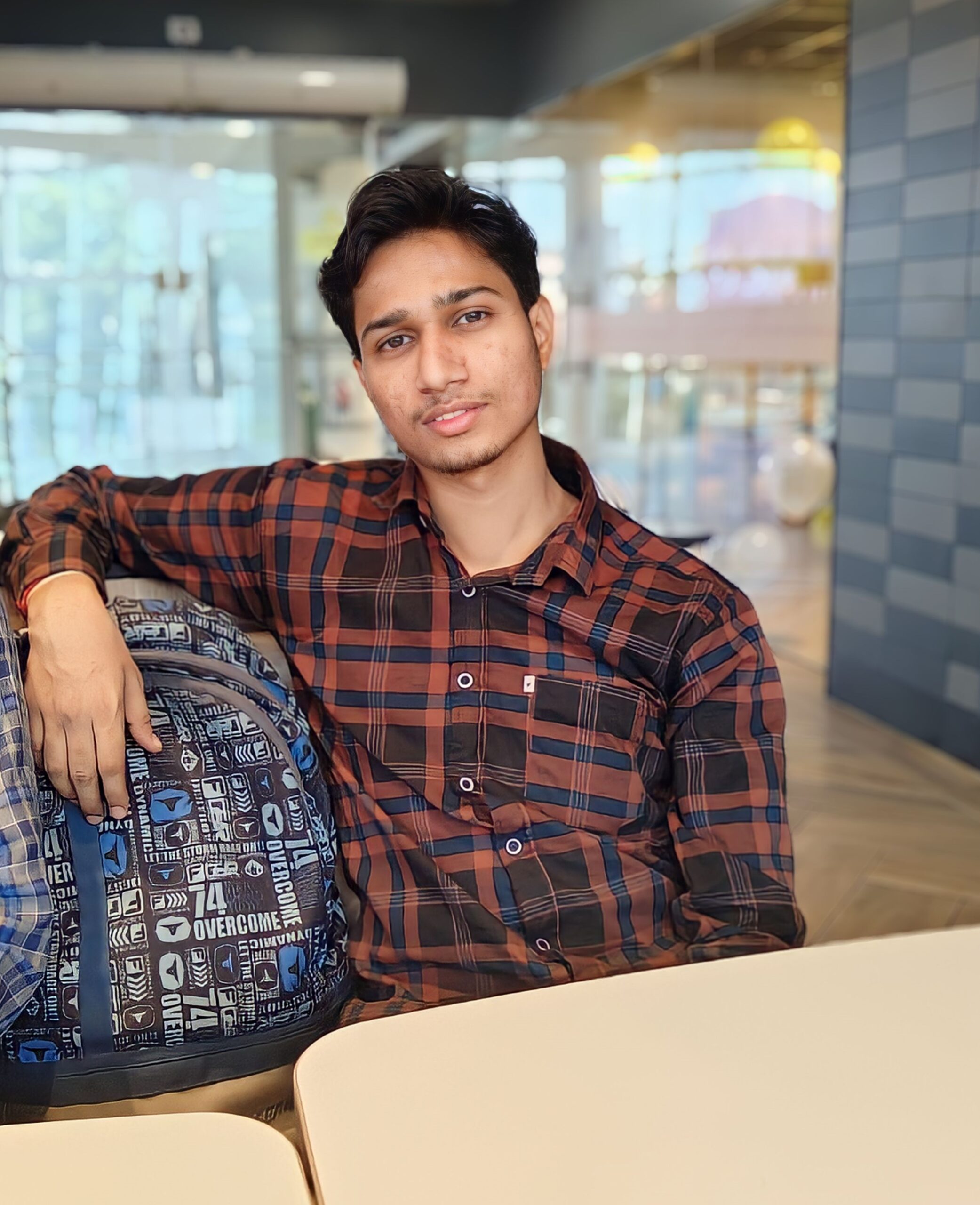
I am a writer with a passion for technology and gaming. I write about a variety of subjects, including Esports, Games, Shows, and Sports. I create engaging and informative content for Hiptoro.

